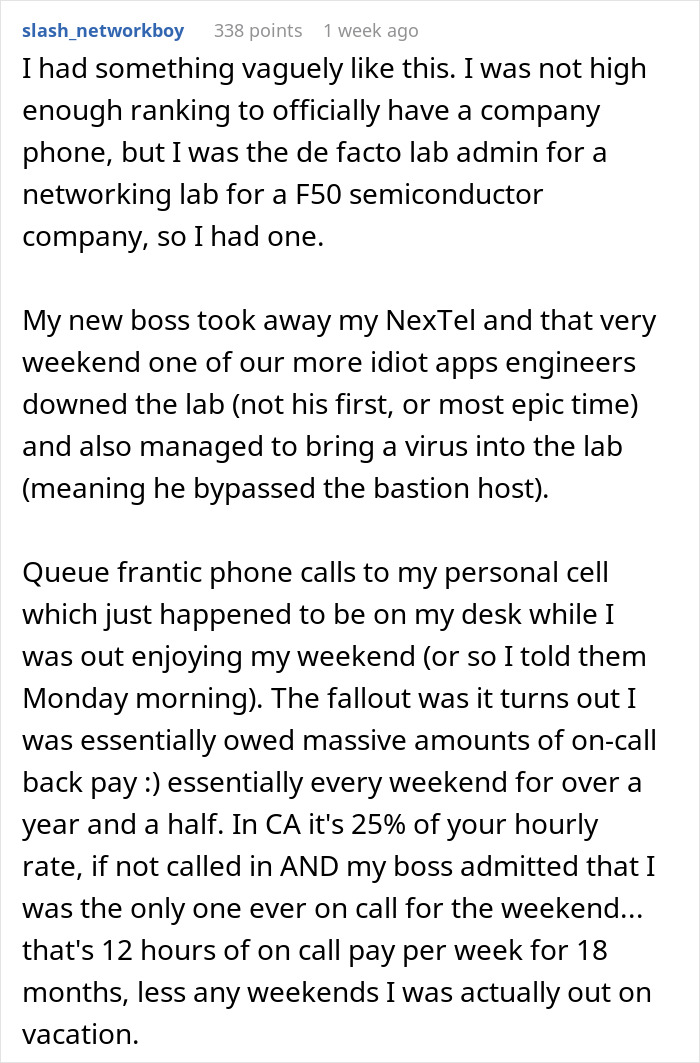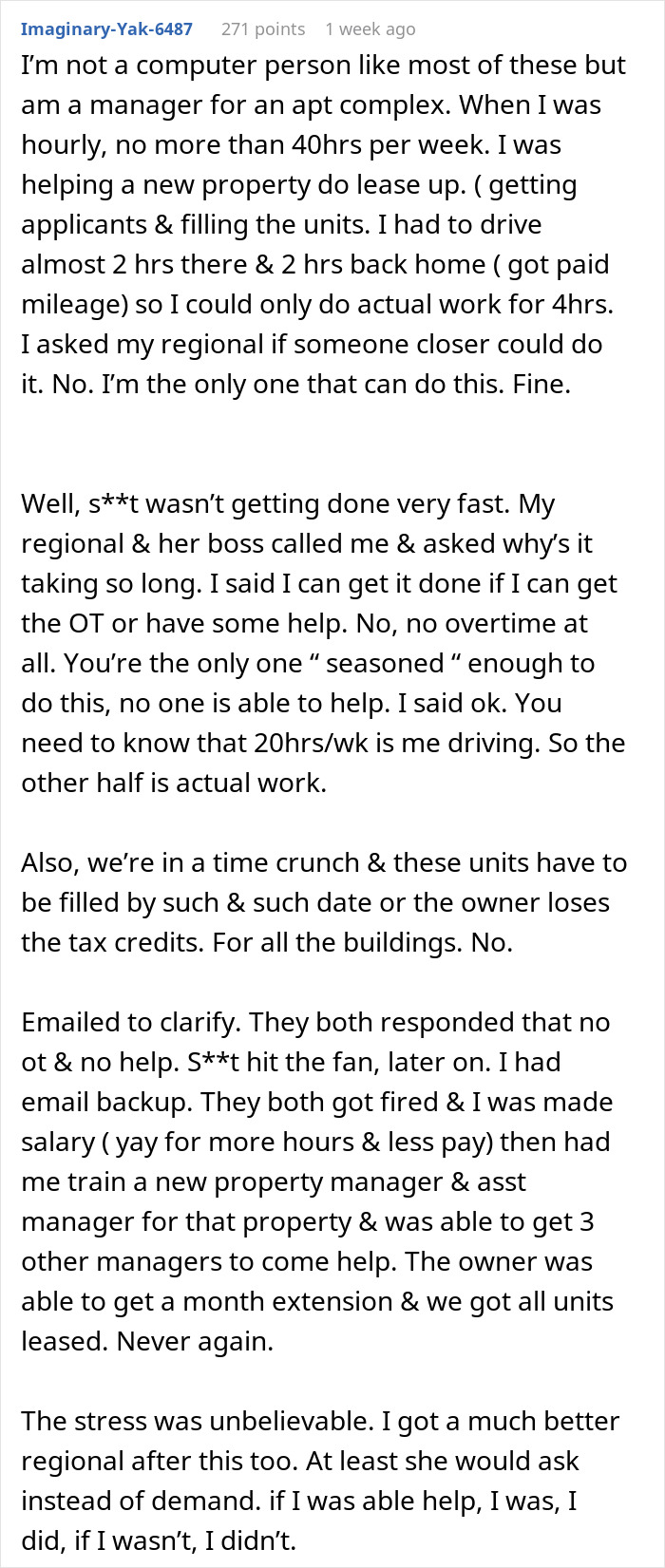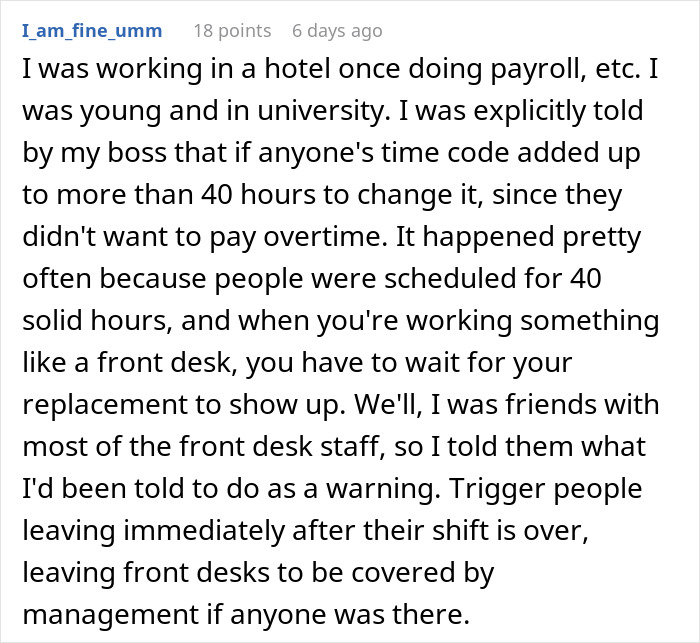Working long hours isn’t anyone’s favorite, but for one Redditor, it was necessary to keep a large financial company running smoothly. As a dedicated developer, he often stayed late to make sure any issues were taken care of. However, things took a turn when a new boss came in and enforced a strict “no overtime” rule.
So, in the middle of a major crisis, the man simply followed the orders, clocked out, and went home, watching the chaos erupt behind him.
The man often worked overtime to keep the company running smoothly

Image credits: seventyfourimages (not the actual image)
But the new boss wasn’t having it, and soon everything fell apart
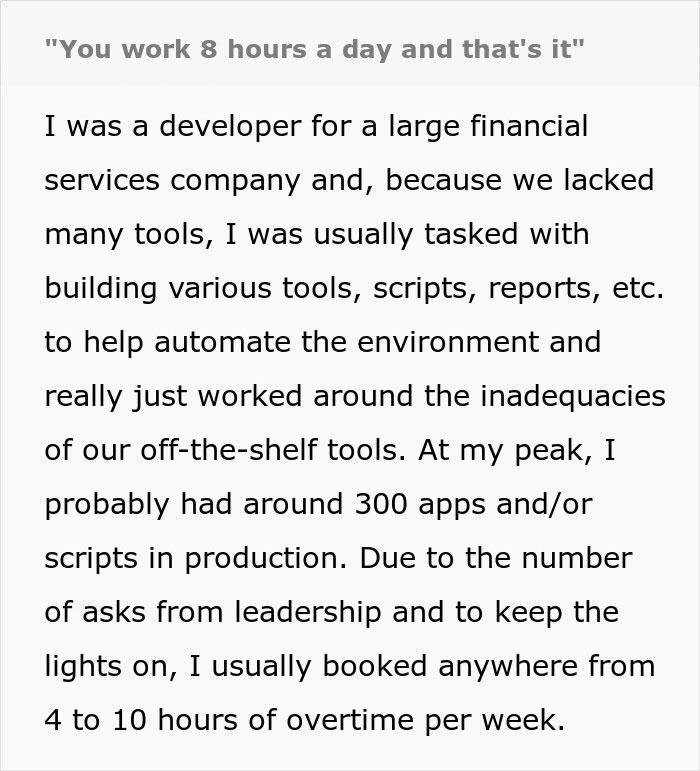

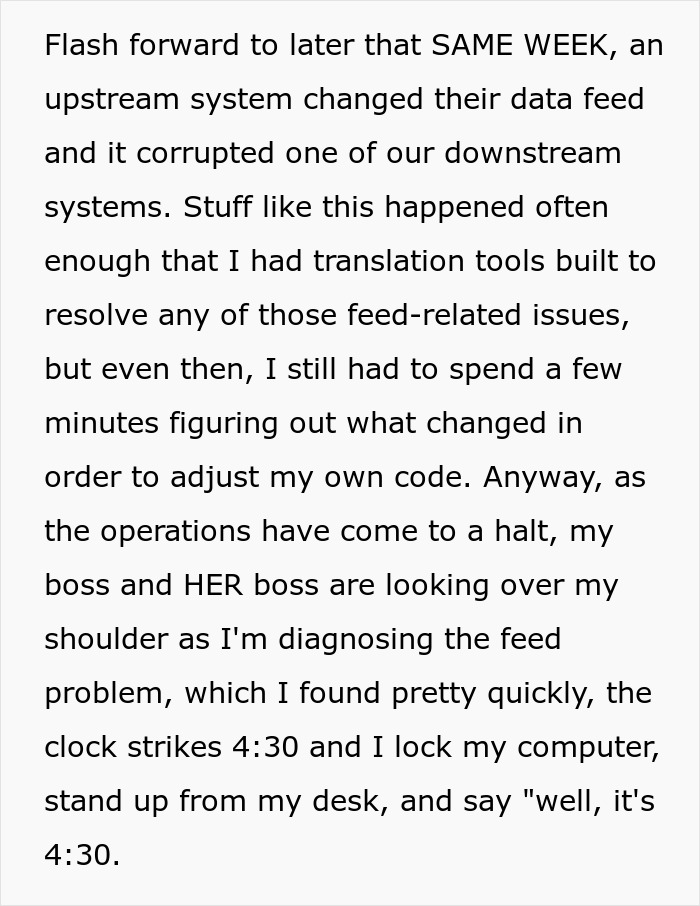

Image credits: Lukas (not the actual image)
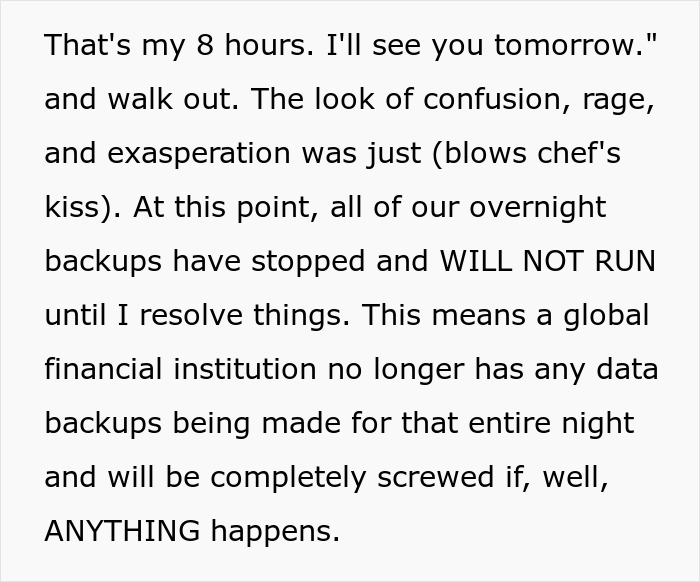
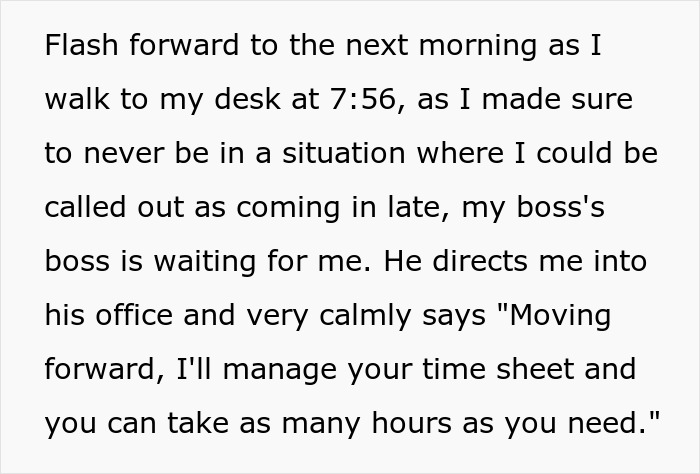

Image credits: Image-Source (not the actual image)
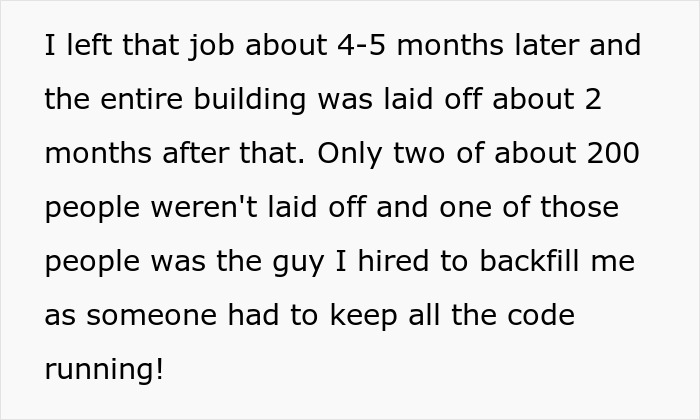
Image credits: runnerdan
Most employees feel the pressure to overwork
Being diligent, like the OP of the Reddit story, and putting in extra hours to stay on top of your job is something many can relate to. In fact, research by Inc and Go found that 95% of people feel external pressure to overwork. The top three sources of this pressure were work superiors (65%), friends and family (46%), and culture and media (43%). Interestingly, women were likelier to feel pressure from bosses and coworkers, while men felt it more from society and culture.
Additionally, the number of hours people spend working without pay has been increasing. In 2021, unpaid overtime jumped to an average of 9.2 hours per week, up from 7.3 hours in 2020.
Young workers, especially those aged 18 to 24, tend to log the most unpaid overtime. ADP’s 2023 ‘People at Work’ report, which surveyed 32,000 workers across 17 countries, showed that this age group typically puts in an extra 8 hours and 30 minutes each week—whether by starting early, staying late, or working through breaks. This compares to 7 hours and 28 minutes for 45-to-54-year-olds, and just 5 hours 14 minutes for those 55 and older.
“I often start my day very early reading what’s breaking news in education, tech or the climate, as my job requires me to know what’s going on across a very broad range of topics,” says Jasmin, a media relations executive in her twenties, based in the UK. “Often in the evenings, I’ll spend a couple of hours making sure I’m ready for the next day, and on a Sunday, I’ll often head to Caffè Nero for a coffee and croissant to do admin and make sure I’m set up for the week ahead.”
Gen Z workers have faced tough job conditions since the start of their careers. Many began working during the pandemic, while others experienced furloughs and layoffs early on. They’ve also seen companies hold back on pay raises and promotions due to economic uncertainty.
Experts say this insecurity has led many young workers to feel they need to prove their worth by working extra hours, which could set them up for long-term stress.
[Young people] don’t have the type of security I assumed I had when I was coming out of university,” says executive careers coach Lara Holliday. “I didn’t know if I’d get the job I wanted, but I knew I’d get a job and I know some day. If I worked hard, I’d be able to afford my own home. They’re coming into a very different world.”
Jasmin shares a similar sentiment. “I want to make sure I’m on it so that people know they’ve made the right choice in hiring me,” she says. “Obviously, it’s extremely competitive, and I feel really grateful just to have a job with everything that’s going on.” She adds that her peers are also aware of negative stereotypes surrounding Gen Z workers. “Everyone thinks we’re lazy, and that we just want to work from home, so it’s also going above and beyond to challenge that.”
Though working harder can be admirable, it’s not a pace that can be kept up forever. Jasmin admits that burnout is a concern, but she’s learning to maintain a healthier work-life balance. “But now I have a really good relationship with my manager who says if I need to take time, I can. And if I’m approaching burnout, too I know the signs.”
In the replies, the man shared that the new boss was later fired as well

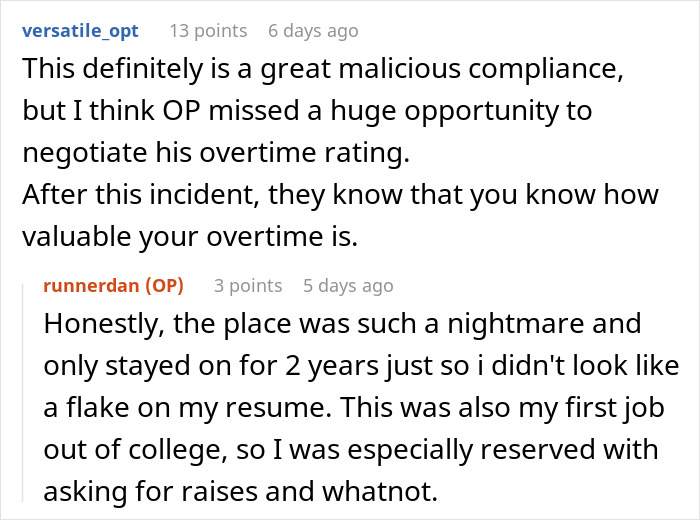
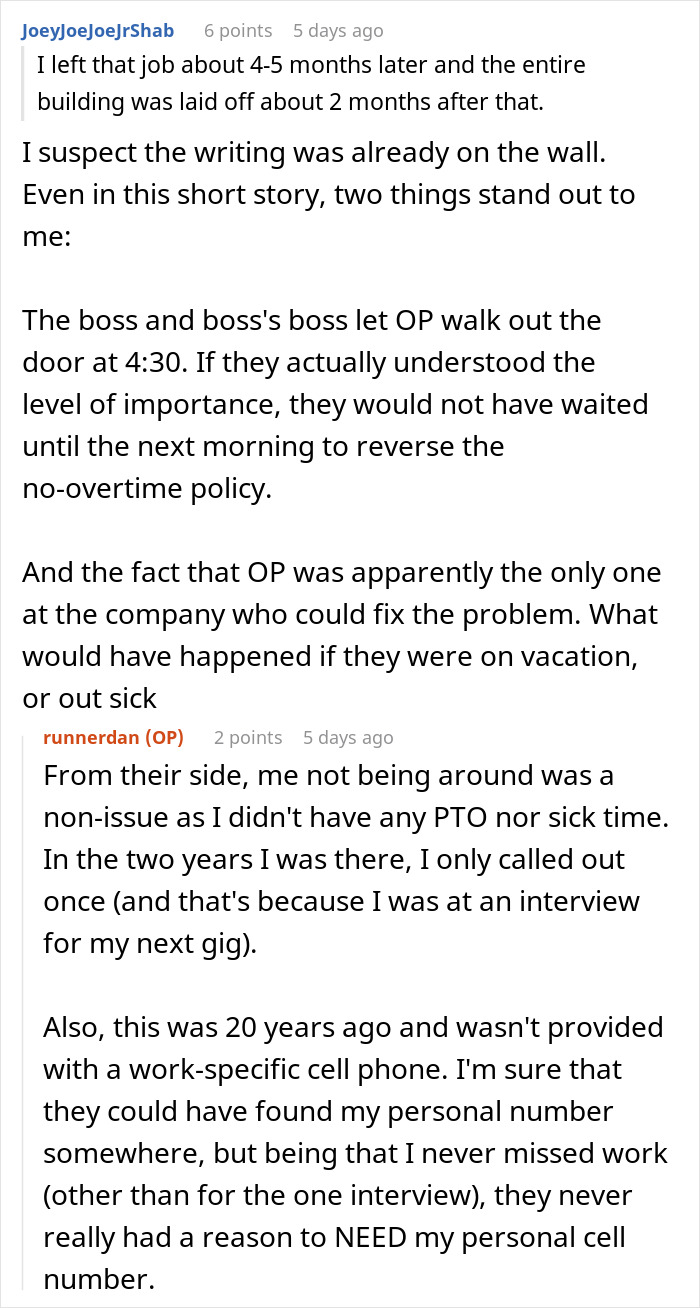

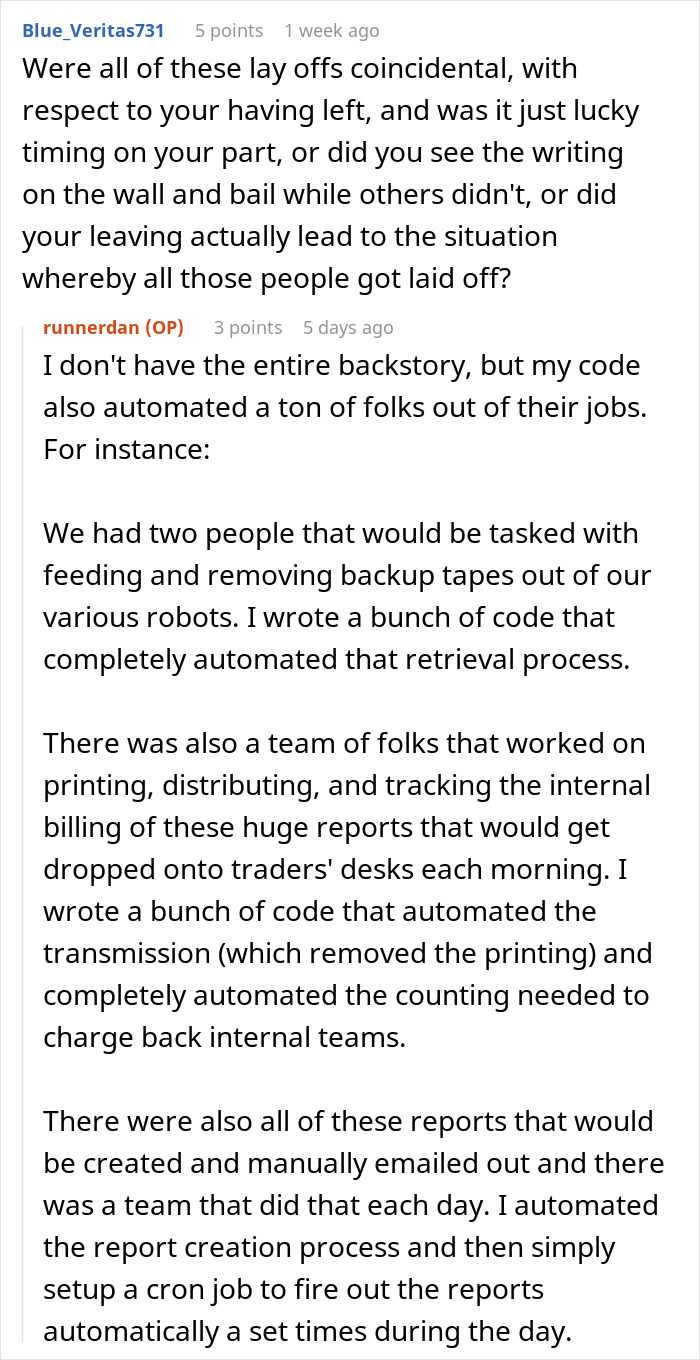
Commenters supported his malicious compliance and pointed out how easily some companies crumble



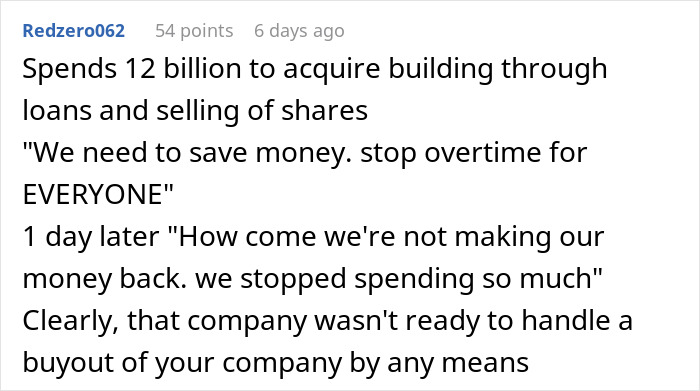
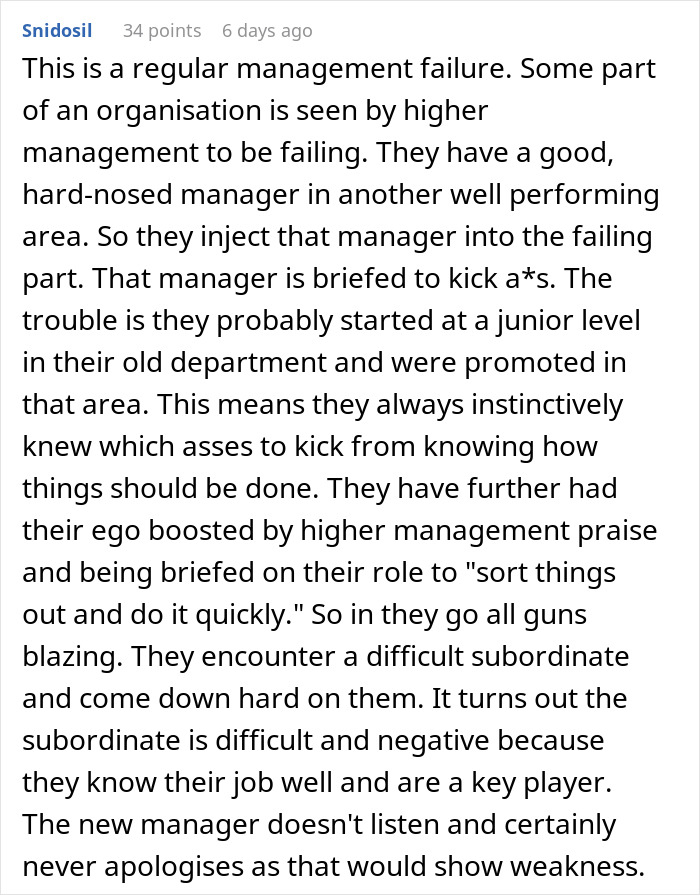

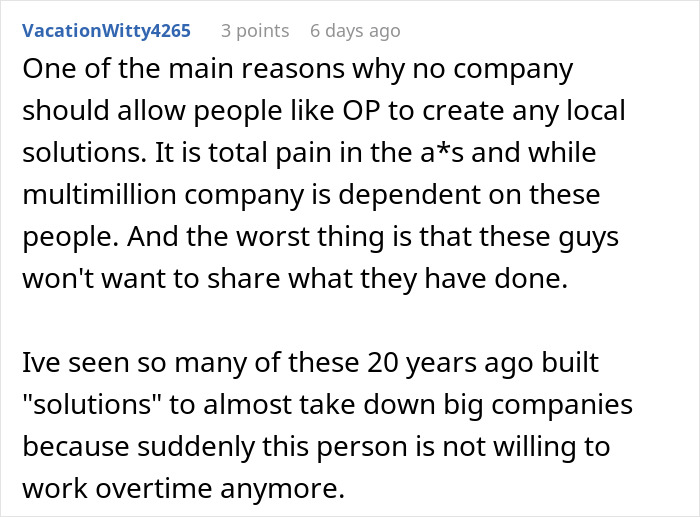
Some users shared their own similar experiences at work
